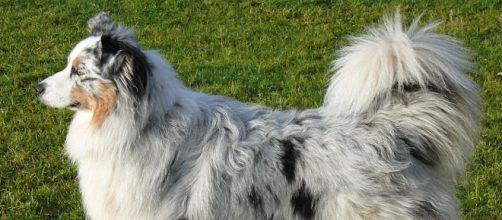As loving pet owners, it is hard to see our fur friends in discomfort. This is what a Dog goes through when they have Dandruff. They itch and scratch but this could lead to hair loss and skin infections when done continuously. High bills and expensive allergy medications could be the reason why you constantly put off taking your itchy pooch to the veterinary clinic.
However, it is very important to take your dog to the clinic as the first step for proper diagnosis. Allergies, parasites and other skin conditions cause dry skin with white flaky scales that can often be mistaken for dandruff.
What causes dog dandruff?
- Low humidity.
When a dog is kept indoors in a heated environment, its skin tends to get dry. This makes the dog scratch frequently leading to dandruff.
- Cheyletiella mites.
They are also known as “walking dandruff.” These mites settle on your dog’s coat and lay eggs. This mange can be contagious to humans as well.
- Poor diet.
Your dog’s coat is likely to suffer when it is not getting enough water or fat and minerals from his food.
- Fungal skin infections.
A dog with an underlying skin condition could affect his whole body. For this case, you will be required to use specialized shampoos for his coat. Allergens can range from pollen, dust and household cleaners. They can also include certain foods.
Natural remedies for dandruff
The following remedies are only for dogs diagnosed with dandruff because of dry skin.
- Increase the humidity.
If the dog dandruff and itchy spells happen during winter, invest in a humidifier.
- Improve the diet.
Commercial pet foods are usually over processed. This makes them lack the good oils for a lustrous hair coat and healthy skin for your dog. Dry pet foods are even more dehydrating. If you really have to give your dog dry food, add digestive enzymes to the meals. It is highly recommended to feed your dog moist food.
- Fill up the water bowl.
Ensure your dog stays hydrated with fresh and filtered water. This will help your pooch to have moisturized skin.
- A proper bath.
Do not feel compelled to give the dog frequent baths.
This will do more harm to its coat by stripping away the natural oils. Once every two weeks is enough. Try using plain water because it is a good non-drying solvent. If you must use shampoo, use a moisturizing shampoo with soothing effects. Recommended shampoos are those that contain either humectants or oatmeal.
Please avoid using blow dryers. The heat is usually very high. If you must, use minimal heat.
- Spread the oil.
It helps to frequently brush the dog. According to "Dogs, Cats, Pets," it stimulates the skin to produce natural oils and evenly spread it. You can also add a few drops of olive oil to act as a topical therapy.
- Include fatty acids.
Supplement the dog’s diet with Omega fatty acids.
They help replenish the essential natural oils for a healthier coat.
- Add nutritious oils.
Add fresh oils in the diet for a lustrous coat. A teaspoon of flaxseed oil or even sunflower oil is helpful. According to “The Holistic Animal Handbook” by Kate Solisti-Matteson, smaller dogs need only one teaspoon per meal while large ones require one tablespoon per meal.
Be sure to first take your dog to a veterinary clinic to rule out any underlying medical conditions that could be causing dandruff. Seborrhea is a medical condition which includes symptoms like the appearance of dandruff on the dog’s skin.
According to "Life with Dogs," dogs are the best pets to have around. It is totally worth it to take good care of them.


